Hephaestus and the Miracle Hammer
Hephaestus creates a hammer to help villagers repair homes and bridges. He teaches them the art of blacksmithing, inspiring them in work and creation.
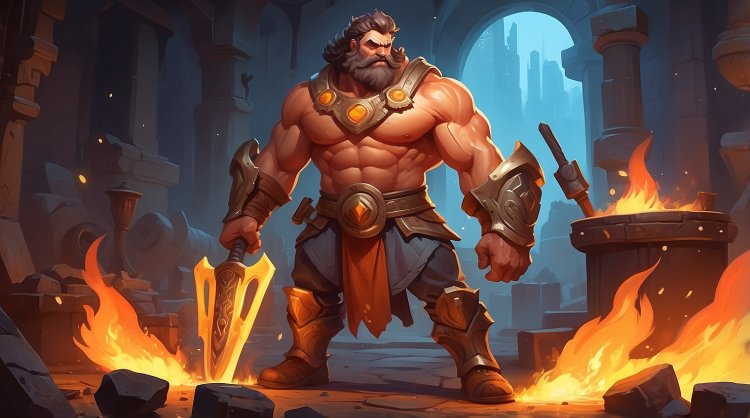
In ancient times, when people still didn’t know how to build sturdy homes and bridges, there lived a god named Hephaestus. He was a master blacksmith, a skilled craftsman, and he knew all the secrets of metals. Every tool and every object that came from his hands was not only beautiful but also incredibly strong. Hephaestus had a forge deep in the mountains, where bright flames blazed daily, and the sound of his hammer echoed for miles around.
One day, Hephaestus heard troubling news carried by the wind. In a nearby village, the people were facing hardships. Their homes were old, and many needed repairs. The bridges over the rivers had weakened, and the villagers didn’t know how to build new ones. They wanted to fix their homes but lacked the right tools and skills.
Hephaestus pondered this. He knew he could help, but he needed to create a special tool—one that would be accessible to everyone and could assist anyone willing to work. The idea came to him quickly: he decided to forge a magical hammer that would ease the villagers' work and teach them the basics of blacksmithing.
Hephaestus set to work. He lit the fire in his forge so brightly that the sky over the mountains turned a golden-red color. Around him lay his tools: heavy hammers, sturdy tongs, and various anvils. Hephaestus carefully chose the metal for his miracle hammer, ensuring it would be both strong and light enough for anyone to use.
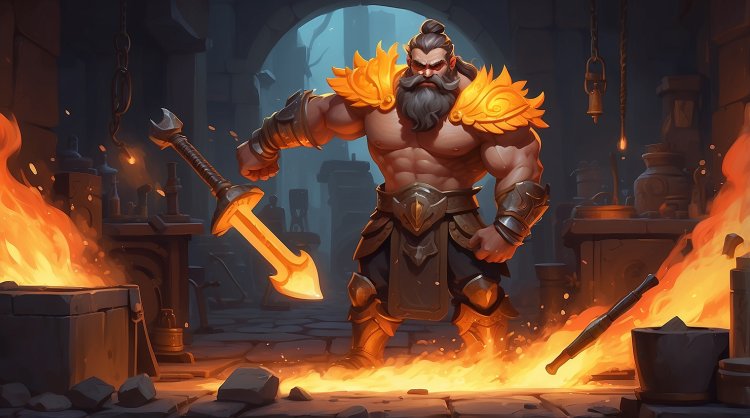
Once the metal was chosen, Hephaestus began to shape it. He raised and lowered his hammer with such force that sparks flew in all directions. Each strike was precise and confident. Slowly, the metal took form, and before Hephaestus lay a hammer like none other. It glowed with a soft, golden light, as if the fire itself was captured inside it.
When he finished, Hephaestus admired his creation. This hammer was not only beautiful but also magical: it could guide its user on how to work with metal, repair broken things, and even build new bridges and buildings.
The next day, Hephaestus walked to the village, holding the miracle hammer in his hands. The villagers, seeing him approach, were surprised and joyful, for they knew a great master had come and believed he could help them.
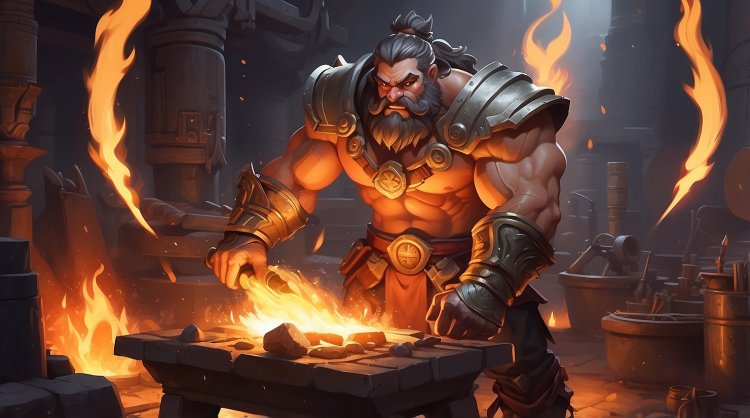
“I heard you need help,” Hephaestus said with a kind smile. “This hammer I’ve made will help you repair houses and build bridges. But remember, the magic only works if you’re ready to put in the effort.”
The villagers gratefully accepted the hammer but didn’t know how to use it at first. So Hephaestus offered to teach them the basics of blacksmithing. He gathered men, women, and even children in a large field and began to explain how to work with metal, how to light a fire, and how to shape iron.
At first, the work was difficult for the villagers. They weren’t used to such heavy labor and feared making mistakes. But Hephaestus patiently guided them through every step, showing them how to hold the hammer, strike properly, and heat the metal to the right temperature.
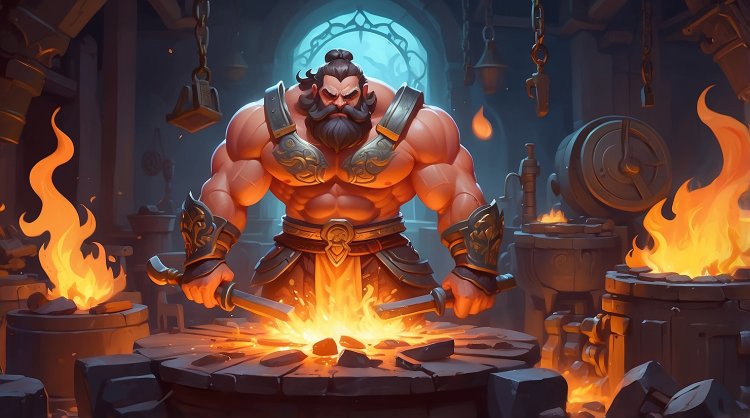
After several days, the villagers began to master the craft. They learned how to use the miracle hammer, which became their trusted helper. With its aid, they were able to strengthen bridges, repair roofs, and even build a few new sheds.
Every day, the sounds of hammers and anvils could be heard throughout the village, and the people worked with joy, proud of the results of their labor. Hephaestus watched them and was happy that his gift had become so useful for everyone.
When the village’s repairs were complete, the people came to thank Hephaestus. They now had not only the tools to build and repair but also the confidence in their abilities.
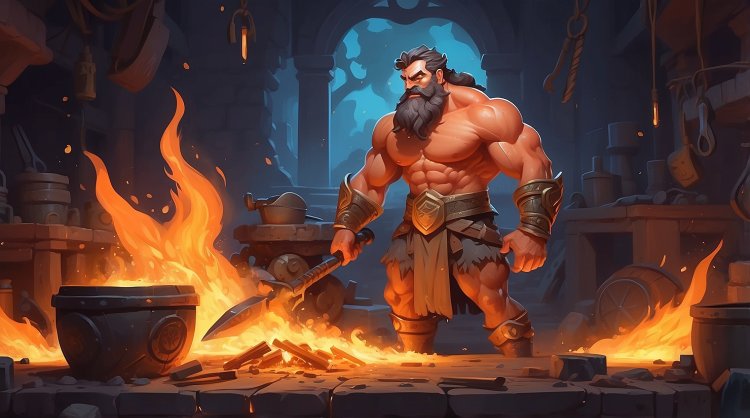
“Thank you, Hephaestus,” they said. “You didn’t just give us a tool; you taught us how to work with metal. Now we can face any challenge.”
Hephaestus smiled and said, “Remember, the strength is not only in the hammer but also in your will to work. Take care of my gift and use it wisely.”
From that day on, the hammer stayed in the village, passed down from generation to generation. The villagers always remembered the kind god Hephaestus, who taught them the craft and helped them find strength and confidence.
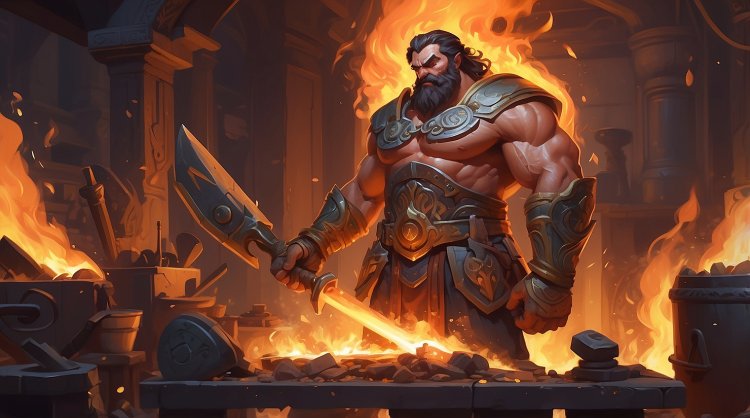
What's Your Reaction?




















